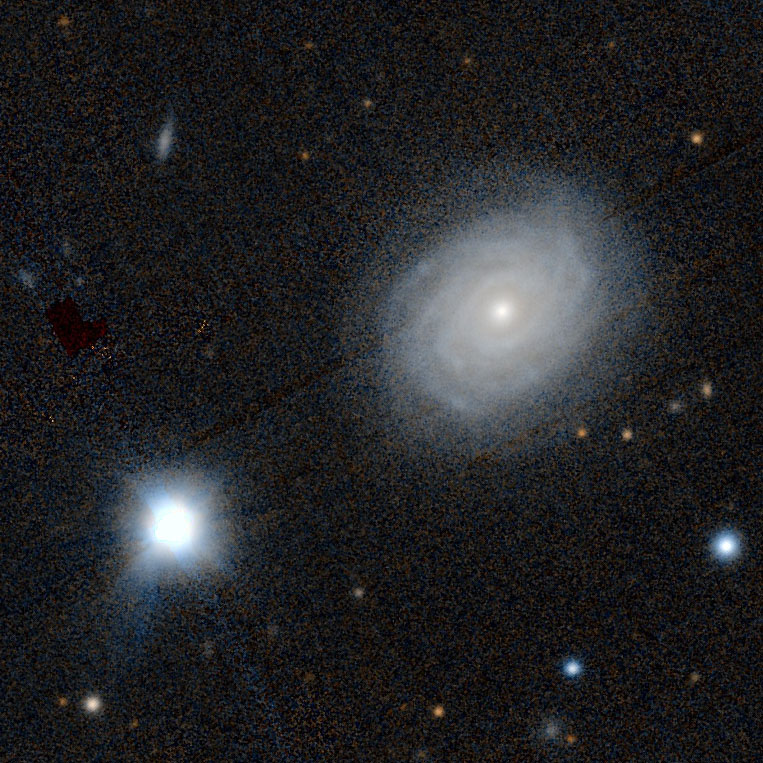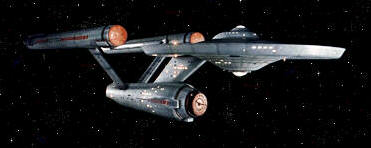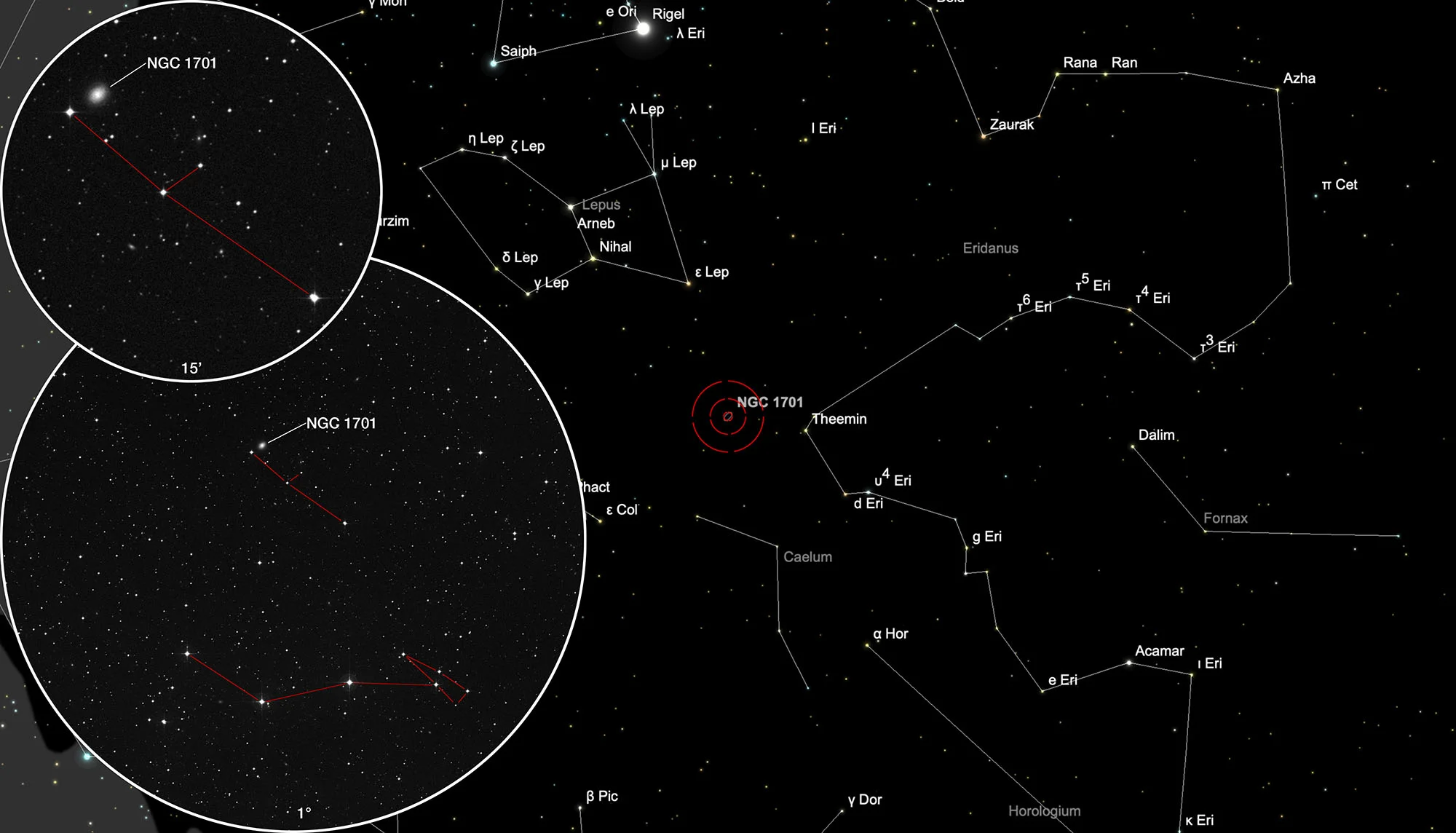Trekkie Galaxy (NGC 1701)


History
The galaxy NGC 1701 was nicknamed Trekkie-Galaxy because of its NGC number, as it almost matches the serial number (NCC 1701) of the first spaceship Enterprise from the TV and cinema cult series Star Trek by Gene Roddenberry. As luck would have it, even the galaxy itself bears a certain resemblance to the Enterprise. The saucer section of the Enterprise, as it orbits the approximately 10.6 mag bright star TYC 6472-1456-1, can be easily interpreted into the compact, elliptical shape of the galaxy.
Physical Properties
The axis of rotation of the galaxy NGC 1701 is inclined by 46 degrees against the direction of view. The galaxy itself is moving away from the centre of the Local Group at a speed of about 5600 km/s. With a Hubble constant of 75 km/s/Mpc, the distance is about 240 million light years. [134]
| Designation | NGC 1701 |
| Type | Gx (Sb) |
| Right Ascension (J2000.0) | 04h 55m 51.1s |
| Declination (J2000.0) | -29° 53' 01" |
| Diameter | 1.2 × 0.9 arcmin |
| Photographic (blue) magnitude | 13.6 mag |
| Visual magnitude | 12.8 mag |
| Surface brightness | 12.7 mag·arcmin-2 |
| Position Angle | 137° |
| Redshift (z) | 0.019467 |
| Distance derived from z | 82.23 Mpc |
| Dreyer Description | F, S, vlE, glbM, * 10, 75" sf |
| Identification, Remarks | h 2676; GC 933; ESO 422-11; MCG -5-12-10; IRAS 04539-2957 |
Sulu, set course for NGC 1701!
The small galaxy NGC 1707 is located in the inconspicuous constellation Caelum, which is southwest of Lepus. This can be found south of Orion. Since NGC 1701 is very far south and only reaches a maximum of about 10-15 degrees above the southern horizon, it is best to wait for the transit time. In late November to early December, the galaxy is at its highest around midnight. After that it goes down earlier and earlier.
The telescope is aligned using the map below. NGC 1701 lies just under 5° east of the 4.6 mag star υ1 Eridani. The 2° close-up helps for more precise identification. The zigzag line made up of four lighter asterisks serves as the starting point. At the western end of it, a pointed arrow points in the northwest direction directly to the galaxy.
Visual Observation
400 mm aperture: With the 21 mm Ethos eyepiece (85x), the exact position can be easily positioned using the star pattern. In the 9 mm Nagler (200x) NGC 1701 appears a faint, oval something without structure next to the clearly visible asterisk. — Taurus T400 f/4.5 Dobsonian, Hasliberg Reuti, 6. 11. 2021, Bernd Nies
762 mm aperture: In the 22 mm Nagler (114x), the galaxy is clearly recognizable as a washed-out oval. The core of the galaxy partially flashes in the 13 mm Ethos eyepiece (193x). — 30" f/3.3 Slipstream Dobsonian, Hasliberg Reuti, 6. 11. 2021, Bernd Nies
